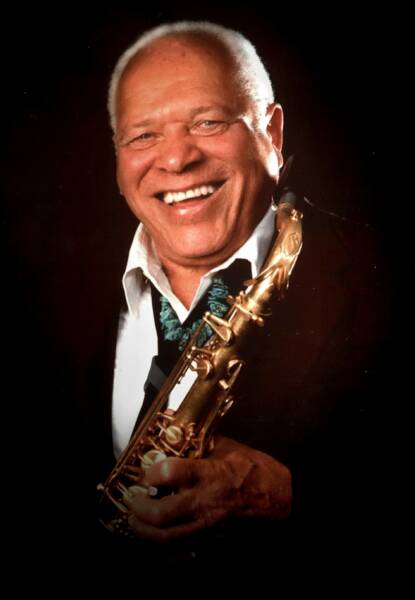University Wire
April 4, 2005
CONCERT REVIEW: Chicago Jazz Ensemble gets better with age
(The Columbia Chronicle) (U-WIRE) CHICAGO -- In the jazz world, age ain't nothin' but a number. On March 19, several of Chicago's oldest and most influential tenor sax players proved that by blowing up a storm with the Chicago Jazz Ensemble in the Great Chicago Tenor Saxes at the Art Institute's Rubloff Auditorium, 230 S. Columbus Drive.
Under the direction of trumpeter Jon Faddis, the CJE, Columbia's resident jazz ensemble, put on a two-and-a-half-hour show demonstrating the orchestra's versatility and offering a sample of jazz history from the 1920s to the 1960s.
The ensemble couldn't have found better guest soloists to pay homage to jazz's evolution than tenor saxmen Johnny Griffin, Ira Sullivan, Von Freeman, Franz Jackson and Eric Alexander. While their combined age is about 360, the guest performers demonstrated that jazz is like a fine wine that only gets better with age.
At almost 93, Franz Jackson was the eldest member of the group and by far the most captivating player. Hobbling across the stage, Jackson appeared vulnerable. But once he took his seat and softly sputtered the smokey opening notes of the standard late-night ballad, "Body and Soul," it was obvious he was in top form.
The living legend, who began his career playing with the likes of pianist Fats Waller and trumpeter Roy Eldridge, played like any note could have been his last. His simple blues riffs sounded like the warm scratchy sounds of an old 78 rpm record and were a reminder that sometimes less is more. On the up-tempo Louis Armstrong classic "Struttin' With Some Barbecue," Jackson's singing evoked Satchmo's husky chant and a smile never left his face.
Griffin also put on quite a show, playing in a more relaxed style than in his early days. He made his first appearance of the night by shuffling onto the stage to share the spotlight with CJE vocalist Bobbi Wilsyn. For his solo, he performed his own "When We Were One," a down-tempo number that showed restraint in his playing.
Typically known for his lightning-fast runs, Griffin played in a more lyrical soul-jazz mode that emphasized his legato phrasing. Though his tone was somewhat muted, the orchestra was able to support the song's sweeping arrangement, and Griffin had a few opportunities to show off his chops.
The three other saxmen played with fire. On saxophonist Sonny Sitt's "The Eternal Triangle," Alexander, the youngest of the bunch at 36, paid his debt to the great saxophonists from Charlie Parker to John Coltrane, blowing through the tune's chord changes with speed and precision.
Sullivan took on one of the more adventurous tunes of the evening, pianist Horace Silver's mid-tempo classic, "Nica's Dream," and Freeman turned out a moving rendition of "Stella by Starlight."
The show was capped off by a full-band performance of the Count Basie staple "Jumpin' at the Woodside" taken at nearly double its standard tempo, during which the guest tenormen had ample time to flaunt their improvisational skills. Each played an extended solo before all trading eights and fours on the chorus.
Even though, technically, the soloists were playing the same song, their collective ideas bled into one another, creating dissonance that was simply captivating. It was a sound that combined 80 years of jazz experience and reminded the audience that while styles have changed in time, the art of improvisation always comes from the heart.
In the first half of the program, the CJE also performed several numbers without the guests, which served to emphasize the band's versatility. Tenor sax player Pat Mallinger did a fine job of avoiding John Coltrane's style during his solo on "The John Coltrane Suite," a three part piece that alternated between bright swing and mid-tempo blues. And tenor sax player, Rob Denty, played an understated solo that ended the first half of the show on a high note.
But nothing could have taken the glory away from Griffin, Sullivan, Freeman, Jackson and Alexander. Their masterful playing was a testament to the vitality of jazz a century after its creation.
